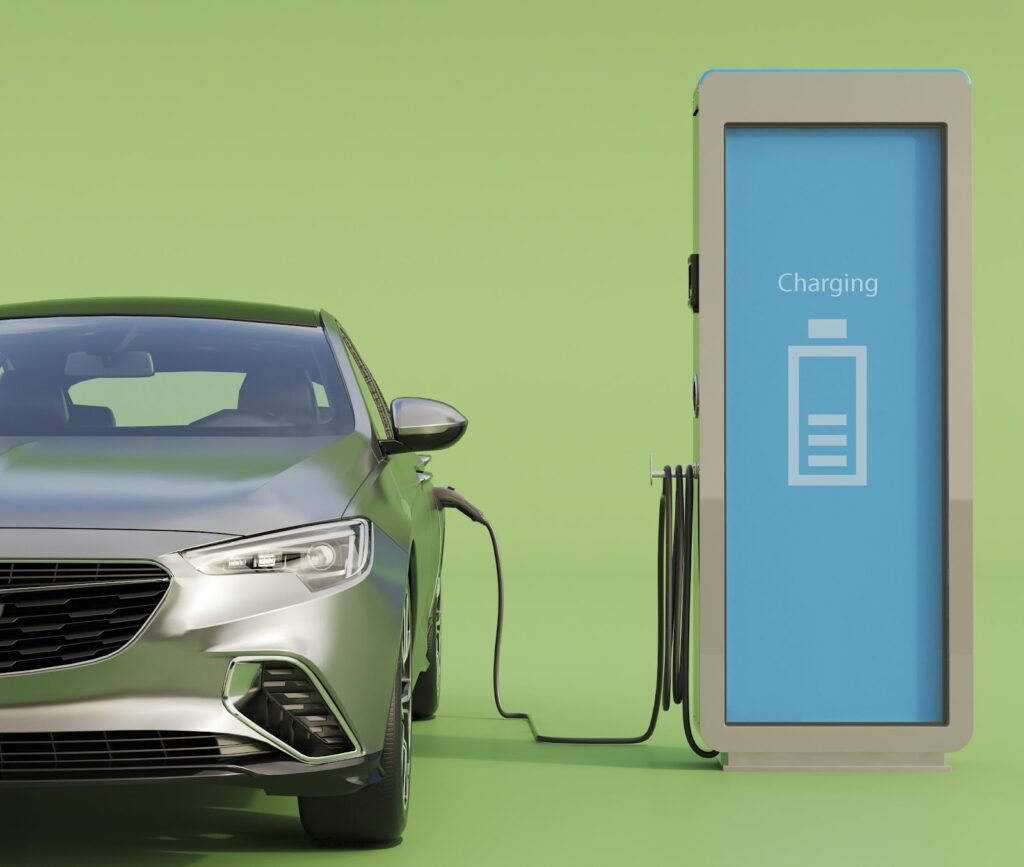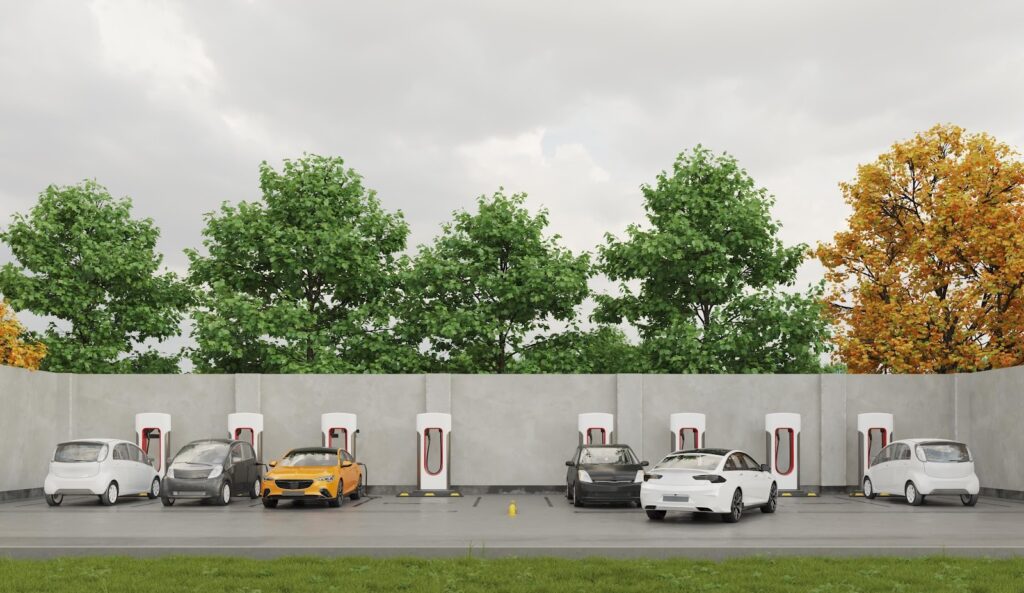Electric cars are gradually gaining acceptance in Japan these days. More and more people are becoming interested in cars that reduce the burden on the environment. However, there are some ambiguities about costs, charging methods, etc., and some people may be unsure whether to purchase one. To resolve such questions and concerns, in this article, we will introduce basic information about electric vehicles. We will explain in detail the advantages, disadvantages, and information about charging.
table of contents
- What is an electric car? Its main types
- ②Advantages of electric cars
- ③Disadvantages of electric cars
- ④Should I buy an electric car?
- in conclusion
What is an electric car? Its main types
An electric vehicle (EV) is a vehicle that uses electricity as a power source and is driven by an electric motor.
Unlike internal combustion engine cars that use conventional gasoline or diesel fuel, electric cars are environmentally friendly, especially since they do not emit any exhaust gases, so they do not emit CO2 or harmful substances that cause global warming and air pollution. It has this feature.
The main types of electric cars include:
battery electric vehicle (BEV)
- Driving energy is stored in a storage battery, and electricity is supplied directly from the charging equipment to charge the battery.
- It does not have a fuel internal combustion engine or a hybrid system.
- Typical examples include Tesla’s Model S and Nissan’s Leaf.
Plug-in hybrid electric vehicle (PHEV)
- By using an internal combustion engine and a large-capacity battery, it is possible to run on electricity alone for short distances.
- The internal combustion engine is used as a power source when driving long distances or when the battery is depleted.
- Typical examples include Toyota’s Prius PHV and Mitsubishi’s Outlander PHEV.
Hybrid electric vehicle (HEV)
- It uses an internal combustion engine and a small battery.
- Driving on battery alone is limited to short distances or at low speeds.
- Typical examples include Toyota’s Prius and Honda’s Insight.
Fuel Cell Electric Vehicle (FCEV)
- It uses hydrogen as a fuel and converts chemical energy into electrical energy using a fuel cell.
- The only waste is water, and there are no CO2 emissions.
- Typical examples include Toyota’s MIRAI and Honda’s Clarity.
②Advantages of electric cars

Electric vehicles (EVs) have become rapidly popular in recent years, due to their many benefits. The main benefits of electric cars are detailed below.
Do not emit exhaust gas while driving
Reduction of CO2 emissions: Emissions of carbon dioxide (CO2), which is a cause of global warming, can be significantly reduced.
Lower operating costs
Savings on fuel costs: Electricity costs less per unit of energy than gasoline or diesel oil, reducing the economic burden of driving.
Lower maintenance costs: Electric vehicles have a simpler structure and require fewer oil changes and engine-related maintenance, which reduces maintenance costs in the long run.
Shaking and noise are suppressed
Quiet: Electric motors operate quieter than combustion engines, reducing noise problems in urban and residential areas.
Low Vibration: Electric motors provide smooth running as there is no vibration due to combustion. This contributes to a comfortable driving experience.
Can be used as a substitute for storage batteries during disasters
Use as an emergency power source: Electric vehicles equipped with large storage batteries can supply electricity to homes and facilities as a temporary power source in the event of a power outage or disaster. This allows it to serve as a lifeline in emergencies.
【Related article】
- Technology trends in the automotive industry from 2023 onwards
- How are EV-related companies around the world using AI?
③Disadvantages of electric cars
Range limitations
Except for some high-performance models, many electric vehicles have a shorter cruising range than gasoline or diesel vehicles. This can be especially inconvenient when traveling long distances. Advances in battery technology have alleviated this problem, but many cars still struggle to travel more than a few hundred kilometers on a single charge.
Lack of charging infrastructure
Compared to gas stations, electric vehicle charging stations are not yet widely available in many regions. Although the number of charging stations is increasing in urban areas, there are fewer charging spots in rural and remote areas, which can make it difficult to travel long distances or change routes unexpectedly.
Charging time problem
Charging with electricity generally takes a longer time than refueling with fuel. Particularly when using home charging equipment or common public charging stations, it is not uncommon for this to take several hours or even overnight. Although this can be shortened by using a station that supports high-speed charging, it often takes more than 30 minutes.
Battery life and replacement costs
Electric vehicle batteries are consumable items, and their performance deteriorates with long-term use and repeated charging and discharging. If the performance deteriorates, it will be necessary to replace the battery with a new one, and the replacement cost will be high. Degraded battery performance means reduced range, which may lead to the need for battery replacement sooner for users who frequently travel long distances.
Although these disadvantages are being alleviated with the spread of electric vehicles, technological advances, and infrastructure development, they remain issues at this time.
④Should I buy an electric car?

People who say it’s their first time driving an EV may be worried that they don’t know about charging, which is a particularly important point. Therefore, here we will explain the main points of EV charging.
Installing a charger starts from 100,000 yen
The cost of home charging equipment varies depending on the type, but the most compact type costs around 100,000 to 200,000 yen. This is the total cost of the charger itself and installation. You may think that it will cost a lot, but in reality, it can be installed at a reasonable price.
Can be charged even in rainy or snowy weather
It can be charged regardless of the weather, except under special circumstances (e.g. heavy rain or lightning). Of course, you need to be careful not to get the plug or connector wet, but the safety measures are in place, so the risk of electric shock or leakage is extremely low.
There are two types of charging: normal charging and rapid charging.
As explained earlier, when using a 40kWh battery, it takes 16 hours to charge with a 3kw charger and 8 hours with a 6kw charger, but this is based on a “normal charger”. If you use a “fast charger” installed at large facilities or dealers, charging can be completed in just 40 minutes.
Even if your battery is about to run out due to a sudden long trip, you won’t feel any inconvenience if you use quick charging and take a break while waiting.
in conclusion
In conclusion, purchasing an EV involves many factors, each with its advantages and disadvantages.
For those interested in the Japanese EV market, CMC Japan will soon release an e-book focusing on the current state of the Japanese EV market and its future.
Stay tuned to learn more about the future of EVs in Japan.

